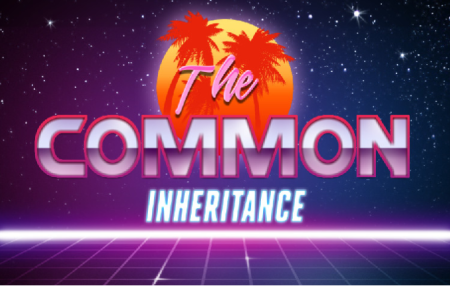Critique on 'Common Inheritance'
After reading Peter Kropotkin's "Conquest of Bread", I've had a few days to think about one of the concepts introduced in the book: 'Common Inheritance'. This article presents a few thoughts I personally have on it and its a mini-project of mine to see how the premise of this 'Common Inheritance' holds up to scrutiny and critique.

In "Conquest of Bread" Peter Kropotkin gives us a taste of his thoughts on how he view the world in a, arguably, collectivist way: The wealth, inventions and creations of today is built from generations upon generations of sacrifices and work. The foundation of today's society was laid down thousand of years ago and follows a sort of red line through history to reach the current time. With this argument in one hand, he points with his second hand to explain occurrences surrounding himself:
" A house in certain parts of Paris may be valued at thousands of pounds sterling, not because thousands of pounds’ worth of labour have been expended on that particular house, but because it is in Paris; because for centuries workmen, artists, thinkers, and men of learning and letters have contributed to make Paris what it is to-day — a centre of industry, commerce, politics, art, and science; because Paris has a past; because, thanks to literature, the names of its streets are household words in foreign countries as well as at home; because it is the fruit of eighteen centuries of toil, the work of fifty generations of the whole French nation. " - Peter Kropotkin, 'Conquest of Bread'
I view this as a fundamentally flawed premise, based on the outlook I have on ownership: You own yourself and through that, you also own what you create - To keep or sell. If you sell something you create, you forfeit ownership over that in favor of ownership over something else. This is the position I will use to argue 'Common Inheritance'. If you view that premise to be false, the rest will also be false - I like to play with an open hand as it promotes honest discussion.
The 'Common Inheritance' suggests that we all, collectively, have ownership over everything basically through existence. But, ownership means you can trade it away or forfeit it through other means (neglect for example). It is very hard to follow the red line all the way from an inception of a specific idea to a "finished" product (finished in a sense that its currently the highest product in a chain, or generally viewed as the end of its current life form) and this alone make it hard to see if anyone along the way forfeited ownership.
There is also maintenance of an idea to consider, if we want to go a layer deeper: If my car breaks down and I do not have the mechanical skill to repair it, I need to find someone that has studied and cultivated the necessary knowledge to repair my car. When I finally find someone and this person repairs my car satisfactory I have two options to consider:
1. Recognize this person as an individual, the knowledge he/she possesses to have value for me and compensate for the service I asked for.
2. Claim that the only reason he/she has this knowledge is because generations of mechanics and engineers has made not only the car possible, but all the tools he/she used and, as I am also human I can stake out some of this knowledge for myself through inheritance and do not need to compensate this person for any service and drive off.
The second option has several philosophical problems attached to it. If we both have ownership of the mechanical skills, why do I not have them and the other person does? Can I use another person as an external hard drive for knowledge I don't have a desire to learn? Is the other person obliged to repair my car whenever I chose, or does the mechanic set the limits for how 'our' knowledge should be shared? Once the car is repaired, can a third party take it as part of his/her inheritance and use it? If all three of us own the car, in the abstract, how can we determine who has the turn to use the car?
All this would lead to quite a different social order, especially if you apply the above example to everything in society, as Kropotkin doesn't recognize there being a difference of personal, private and public property. There is nuances to the collectivist ideologies, of course, and I am arguing this specific branch, applying my own (perhaps faulty) arguments to how this is would turn society into an absurd game of chicken ("I need to make this particular thing, but if I am the first someone else might come and use it before I get the chance"), but its a starting point at least.
-- Alex Utopium --
Interested in reading my book review on Peter Kropotkins "Conquest of Bread"? Read it here!
Thank you so much for reading, it is appreciated! Feel free to respond with a comment down below or hit me up on social media: